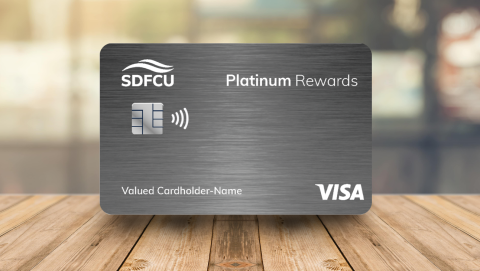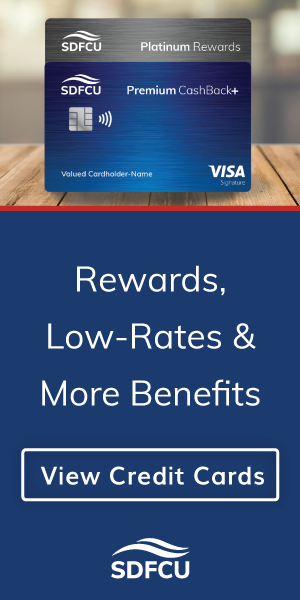Why get a credit card?
As with so many things in life, it pays to start early. As in, starting in early adulthood to begin building up a solid credit history. So, when it comes time to borrow for big-ticket items such as homes and automobiles, lenders will be more inclined to offer you low-interest rates — potentially saving thousands over the course of a loan.
Your first credit card
A first credit card is how many people lay the groundwork for their credit history. When you use a credit card, your activity is compiled into a credit report based on how you use your card(s) and then those facts are turned into a score (called your credit score). The higher your score (up to a max 850), the more likely the credit union or bank is to trust you enough to give you a loan, and the lower the interest rate you’ll pay for it — which is the goal.
Not all credit cards are created the same, because terms and benefits vary. But it is common knowledge (and recommended) to look for a card with no annual fee and the lowest interest rate possible.
When should you open a credit card?
Ideally, after your junior or senior year of college. By opening a credit card this young, you have some time to establish a credit history so when you are ready to rent your first apartment, you’re more likely to be approved. (Yes, landlords check credit reports, too.)
If you’re not ready for your own card or can’t qualify for one, you can ask your parents to add you to one of their cards as an authorized user. That helps build credit, too, as does opening a secured credit card.
How to use your credit card
Consider limiting your new credit card usage to buying routine monthly items, like gas and groceries, and pay off the balance in full at the end of each month, in order to positively impact your credit report.
The temptation to charge up a storm can be strong when that first piece of plastic arrives in the mail. That’s why you shouldn’t buy what you can’t afford to pay off at the end of the billing cycle. To avoid paying interest on what you buy, you must pay off the balance every month so that you won’t have to pay more than what you borrowed.
Visit the Learning Hub to discover 5 tips for using your credit card responsibly.
The best of both worlds
It’s a good idea to open a checking or savings account with a debit card that can be used to withdraw the funds you deposit there.
Debit cards are a good way to stick to a budget because you can only spend what you have on hand, they won’t help you build a credit history. That’s why it’s wise to have at least one credit card AND a debit card in your wallet. That way, you can live on a budget by using the debit card for everyday purchases and bills and then build your credit by making a few small purchases each month with the credit card then paying the bill on time, without fail, every month.
If you’re ready for your first credit card, SDFCU has just the right card for you. Choose from one of our three no annual fee and competitive low-interest rates credit card options.










